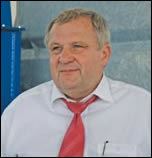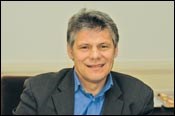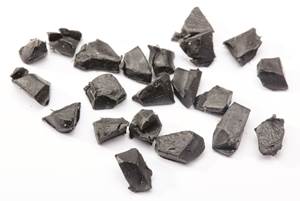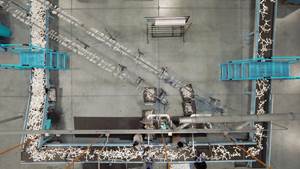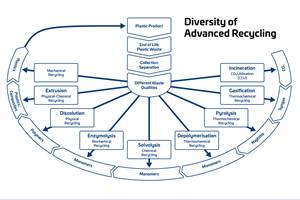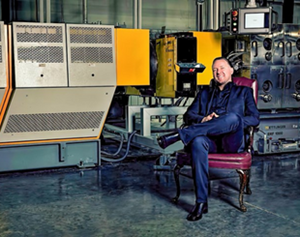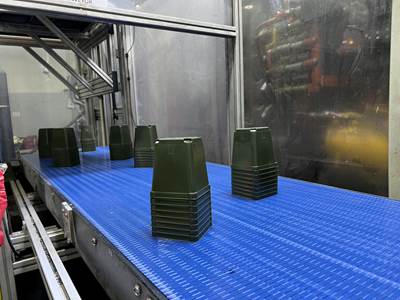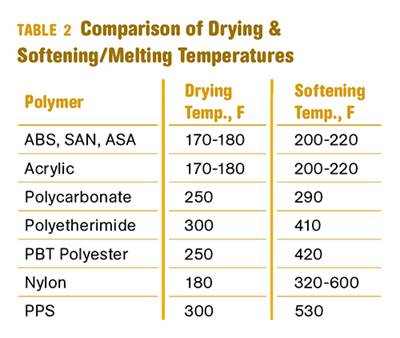Two Recyclers Build Better Mousetraps
Josef Soellner and Werner Kruschitz are entrepreneurs who run established, multi-plant plastics recycling operations in Europe.
Josef Soellner and Werner Kruschitz are entrepreneurs who run established, multi-plant plastics recycling operations in Europe. Each started out on a small scale, and each developed a flexible combination of custom and toll recycling that generates a range of products including flake, pellets, and sheet of different resins. Along the way, both of them came up with their own process technology and built their own machines. And now both of them are offering their home-grown technology for sale to others.
Soellner is founder and sole owner of STF Group in Aicha vorm Wald, Germany. It comprises three companies and seven plants: STF Recycling GmbH, a recycler of PET and polyolefin flake; STF Thermoform-Folien GmbH, a maker of recycled PET and PS sheet for thermoforming; and STF Maschinen & Anlagenbau GmbH, a new operation building STF’s recycling machinery.
Kruschitz is founder and sole owner of Kruschitz GmbH in Volkermarkt, Austria, an umbrella for four companies. Kruschitz Kunststoff-Recycling GmbH recycles post-consumer PET bottles and industrial scrap. OvoPET Verpackungsproduktions makes recycled PET sheet for thermoforming and crystallized pellets for bottle-to-bottle molding. Sky Plastic toll compounds industrial scrap of PS, PP, and HDPE. And PRM-Handels GmbH is a broker of recycled glass, metal, and plastic, which also recently began building recycling systems.
Built from experience
STF’s and Kruschitz’s successes are due at least in part to their ability to build and assemble much of their machinery in-house, with each new plant incorporating improvements learned from hard-earned experience. “The know-how from daily production of PET flake optimizes the construction of further PET recycling plants,” says Soellner of STF, which recycles approximately 250,000 lb/day of PET flake. Daily use of the machinery “ensures continual development and improvement of the PET recycling plant.”
STF began to sell its home-built recycling machinery 10 years ago, offering what owner Soellner calls his “little pots” to wash flake (see p. 49 for details). Six years ago when PET bottles began to replace glass in Germany, STF built its first hot-caustic friction washer and has expanded with three more PET washing plants since then. STF doesn’t build everything in-house. It buys specialized components like automatic sortation devices and granulators. Other system components are modifications of existing machinery.
In 2002 STF named an agent and exhibited at a couple of German trade shows in 2004 and 2005. There are now 28 STF lines running commercially in Europe and in the Middle East. Soellner isn’t concerned about creating competition in his back yard. STF has done so well with machine sales that Soellner is now considering making machinery his primary business, and continuing the recycling operation only to support new machinery developments.
Home-grown technology
Even Kruschitz uses STF’s wash line for PET bottle flake, and also buys 60% of STF’s PET flake output. Then Kruschitz crystallizes and pelletizes the PET for bottle-to-bottle applications.
Kruschitz assembles his own machines for polyolefin flake washing from a number of purchased components. He also builds his complex materials-handling systems to handle a lot of different resins and convey them automatically from flake processing to compounding and pelletizing.
Four large twin-screw extruders compound polyolefins into colored and glass-filled materials. Two compounding lines are dedicated to PP, one to HDPE, and one to PS from yogurt cups. Kruschitz produces 55 million lb/yr of polyolefin compounds for markets like pipe, injection molding, automotive, and office furniture.
After observing STF’s success in building machines for commercial sale, Kruschitz began to offer his recycling plants and machinery for sale. “I’ve seen how well Mr. Soellner does with machinery,” Kruschitz notes. He has already sold two lines, one for LDPE in Yugoslavia and one for HDPE in Indonesia.
Related Content
Avoid Four Common Traps In Granulation
Today, more than ever, granulation is an important step in the total production process. Our expert explains a few of the many common traps to avoid when thinking about granulators
Read MoreReversing Logistics for Plastic Film Recycling
Learn how Mainetti built a circular supply chain for clear film packaging.
Read MoreAdvanced Recycling: Beyond Pyrolysis
Consumer-product brand owners increasingly see advanced chemical recycling as a necessary complement to mechanical recycling if they are to meet ambitious goals for a circular economy in the next decade. Dozens of technology providers are developing new technologies to overcome the limitations of existing pyrolysis methods and to commercialize various alternative approaches to chemical recycling of plastics.
Read MoreA Recycling Plant, Renewed
Reinvention is essential at Capital Polymers, a toll recycler that has completely transformed its operation in a short period of time.
Read MoreRead Next
Processor Turns to AI to Help Keep Machines Humming
At captive processor McConkey, a new generation of artificial intelligence models, highlighted by ChatGPT, is helping it wade through the shortage of skilled labor and keep its production lines churning out good parts.
Read MoreWhy (and What) You Need to Dry
Other than polyolefins, almost every other polymer exhibits some level of polarity and therefore can absorb a certain amount of moisture from the atmosphere. Here’s a look at some of these materials, and what needs to be done to dry them.
Read MoreAdvanced Recycling: Beyond Pyrolysis
Consumer-product brand owners increasingly see advanced chemical recycling as a necessary complement to mechanical recycling if they are to meet ambitious goals for a circular economy in the next decade. Dozens of technology providers are developing new technologies to overcome the limitations of existing pyrolysis methods and to commercialize various alternative approaches to chemical recycling of plastics.
Read More



